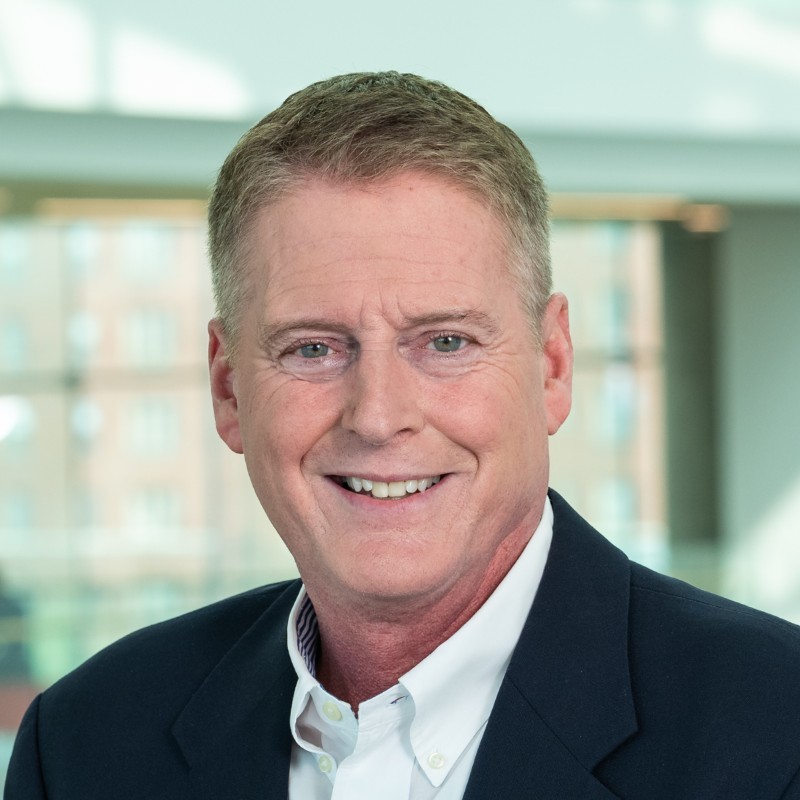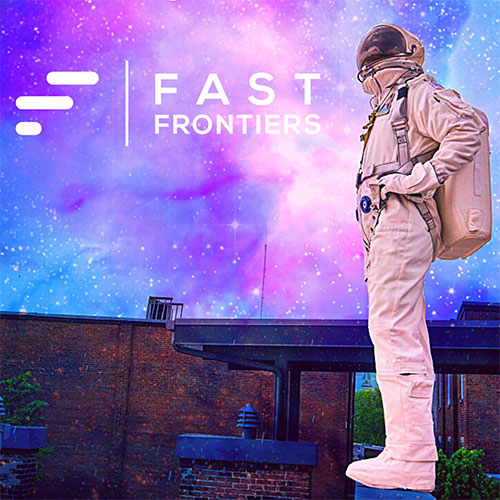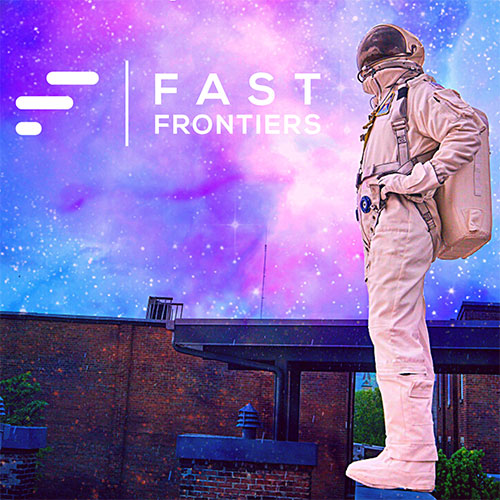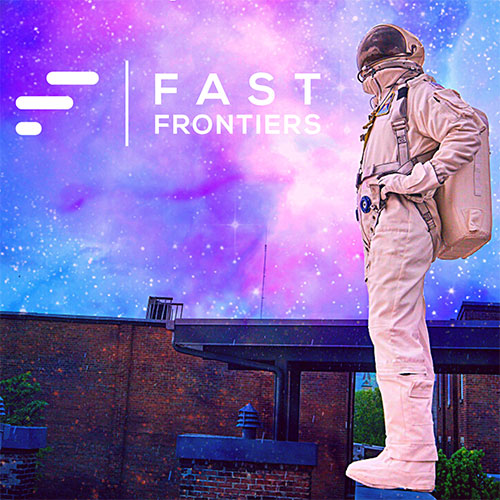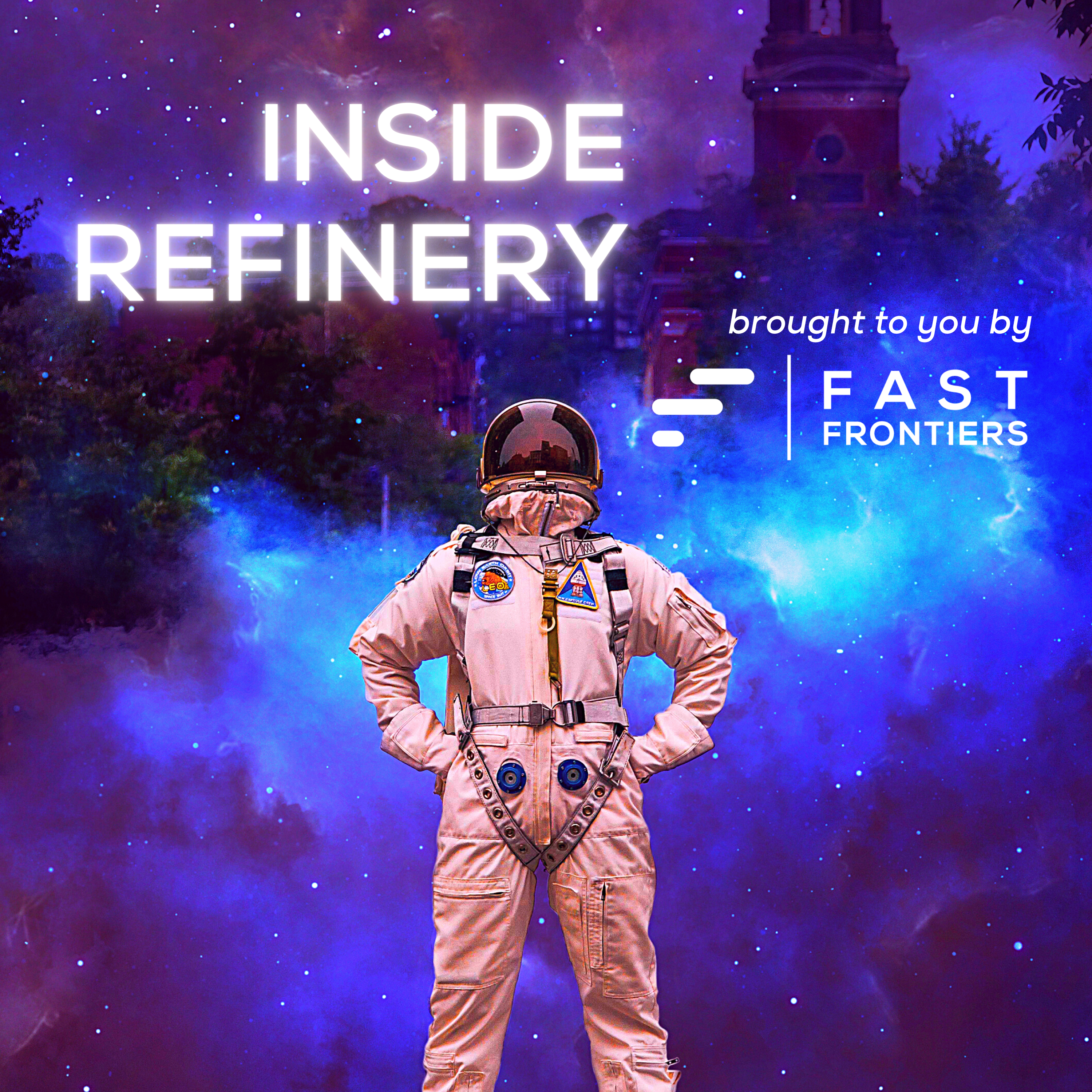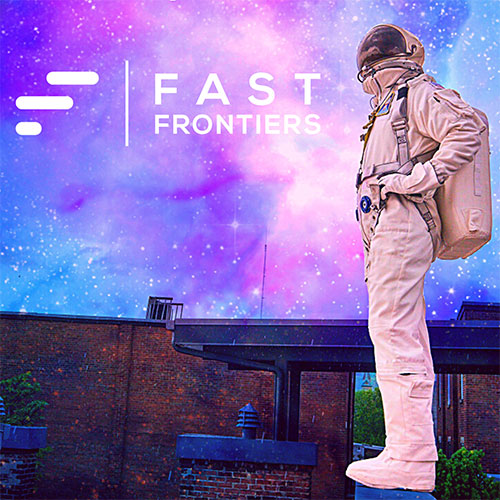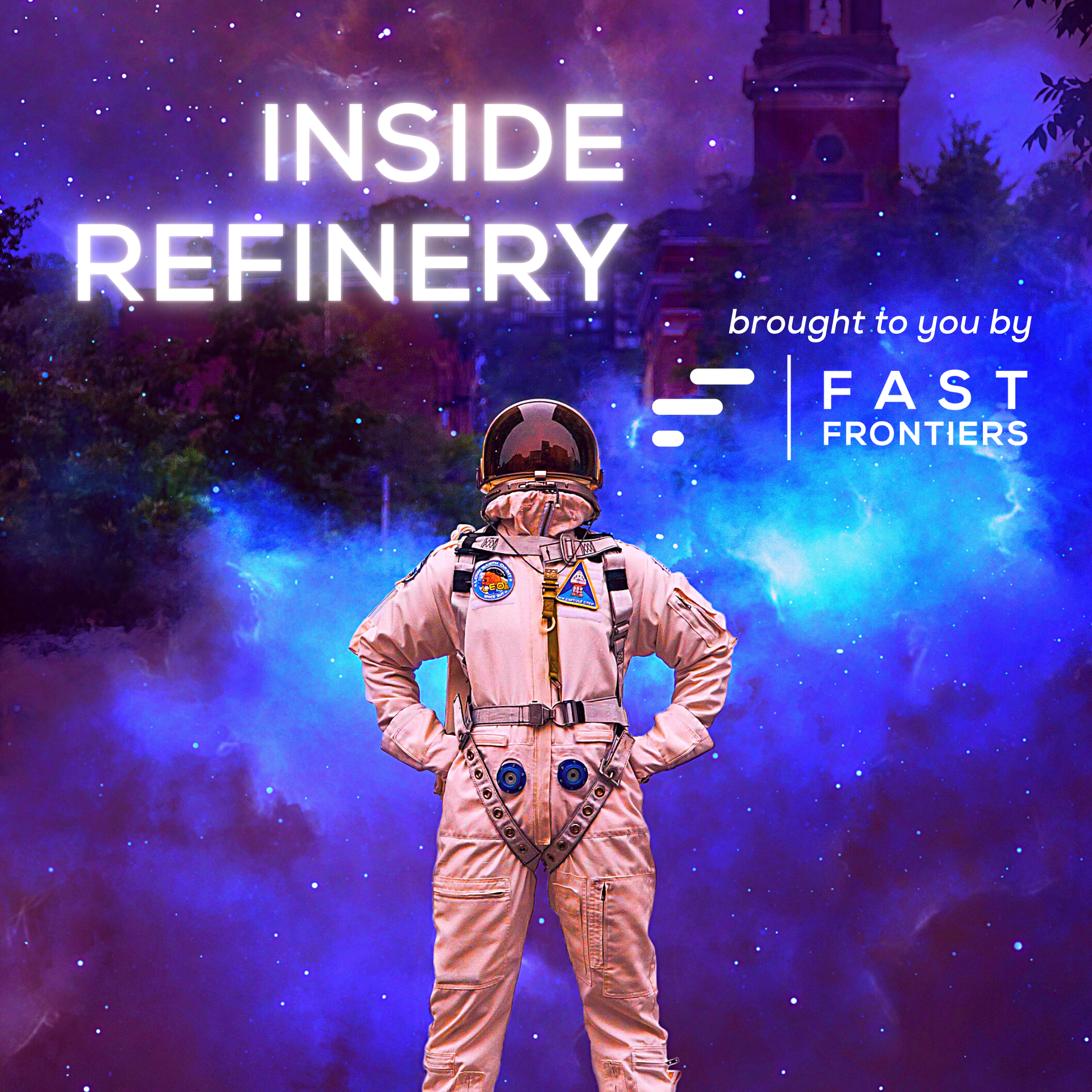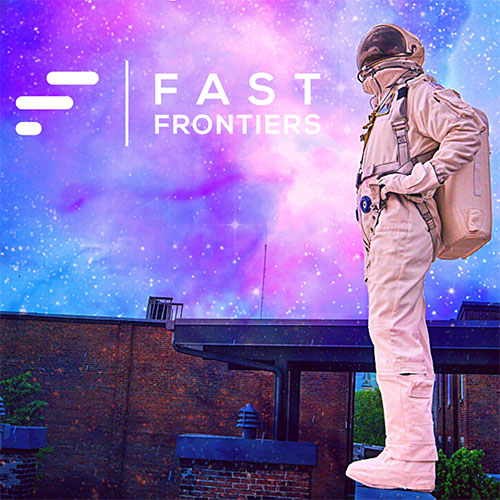S6 Ep. 3 — Dave Mawhinney: The Swartz Center for Entrepreneurship
- 0.5
- 1
- 1.25
- 1.5
- 1.75
- 2
Tim Schigel: Welcome to Fast Frontiers. I am your host, Tim Schigel, managing partner of Refinery Ventures. In this episode, we're talking about my good friend, Dave Mawhinney, executive director of the Swartz Center for Entrepreneurship and executive director of the Donald H. Jones Center for Entrepreneurship at Carnegie Mellon. Dave holds his MBA with distinction from Carnegie Mellon University and has his BS in physics from Indiana University of Pennsylvania. Dave is a serial entrepreneur having started Premier Healthcare Exchange, which was acquired by Medibuy. Hawk Medical acquired by McKesson and IndustryNet, which was merged with AT& T business network. He went on to be co- founder and CEO of mSpoke, internet content and advertising recommendation engine that was acquired by LinkedIn in 2010. So he is one of the premier leaders of entrepreneurship within our major universities in this country. And we talk often and he shares his wisdom, as an advisor, with many startups. So he's here talking with us today, which is fantastic. There's one question that he asks every VC who comes and speaks to Carnegie Mellon, which is if you could only give one piece of advice and there are many pieces you could give, but only one, what would you give? So stay tuned to this episode, to learn the answer to that question. Please enjoy my conversation with Dave Mawhinney. Welcome Dave to Fast Frontiers. So excited to have you on the podcast at last.
Dave Mawhinney: Oh, thank you, Tim. It's good to see you again. COVIDs kept us apart, but I'm looking forward to seeing you again soon.
Tim Schigel: Absolutely. So am I, and it will be soon. So you are probably one of, not one of the top person working in the university in entrepreneurship at the Swartz Center at Carnegie Mellon. I'd rank you number one in the country in terms of the folks I know, and the people that are having a real impact. And I think a lot of it is probably because of your background first as a multi- time entrepreneur. I don't know if you want to call yourself a serial entrepreneur that...
Dave Mawhinney: My wife says I can't keep a job, but serial entrepreneur.
Tim Schigel: Yeah, there you go. There you go. There you go. Take us through what's it like and was that transition? What do you bring to the table going from that entrepreneur, fast grow, startup environment to the university environment?
Dave Mawhinney: Yeah. Well, that's a great question, Tim. And I appreciate you asking. I started five different companies, sold companies to LinkedIn, to Morgan Stanley, to McKesson. I've been a partner in a corporate venture capital firm. So I've been lucky enough to sit at the table in a 360 degree fashion. And I would say that I did not approach coming to Carnegie Mellon as taking a sleepy academic job. In fact, I approached it as a startup and I was reluctant to do it when they asked me, because I saw myself image as an entrepreneur, but then I realized that quite frankly, Carnegie Mellon did not do a lot to help its entrepreneurs, prior to 10 years ago. We always had great entrepreneurs. People like Adobe was started by a CMU entrepreneur. The first four iPhones were developed by Matt Rogers at Apple. Then he went to create Nest labs, which he sold to Google. And I could go on, and on, and on, and tell you about great entrepreneurs. Sun Microsystems, Vinod Khosla, and Andreas Bechtolsheim, CMU alum. But Carnegie Mellon did not open the doors and say," Let me help you entrepreneurs." And I felt like we could change that. And so I created a five year plan, 10 years ago, and with the full understanding that if the five year plan didn't work, then I would move on and do the next thing. But fortunately, the five year plan worked and we got ourselves onto the map, the map being the rankings of top entrepreneurship schools. And our goal is to shoot for the stars and try to be the top.
Tim Schigel: So how has your background as an entrepreneur helped you and from the day to day standpoint, first of all, helped you in terms of framing the issue. But how does it help you day to day when it seems like it would give you a pretty good advantage when you talk to entrepreneurs and folks coming out of academia.
Dave Mawhinney: Oh, absolutely. So I truly believe that entrepreneurs have to be customer- first mentality that we are in existence to serve customers. And our great technology is not what's important. It's important that we have great technology so that we can do what we need to do, which is to provide great solutions to the problems of our customers. And so I was very fortunate to have a mentor named Don Jones. Don was another serial entrepreneur in robotics, in Western Pennsylvania. He created what was called the Don Jones Center for Entrepreneurship at Carnegie Mellon back in 1989, when I was a student and I came under his tutelage and he taught me an important lesson and we call it the goodness factor. And he said," Dave, if you want to be successful as an entrepreneur, if you're bringing a new solution to the table to solve a customer's problem, it needs to be three times better than their current solutions or the alternatives, or it has to be three times cheaper or people won't pay attention and they won't switch." Fast forward to 2014 when Peter Thiel wrote Zero to One and Ben Horowitz wrote Hard Thing About Hard Things. They said it need to be 10 times better, or 10 times cheaper, because with information ubiquity, the number of solutions out there has grown exponentially. So you have to even further differentiate yourself. So back to that original question, if you're an entrepreneur, you have to solve customers problems and you have to solve them better and differently than anybody else. So that's how I approached building the Swartz Center for Entrepreneurship at Carnegie Mellon. Who are our customers, what are their problems? And then how do we serve them better than what the alternatives that they have?
Tim Schigel: I think that's a terrific focus area and something that probably would get lost within an academic institution, if it weren't for somebody like yourself, making sure that it's brought to the front of the conversation. So the Swartz Center founded by Jim Swartz, co- founder of Accel partners. What have you learned from Jim, and what's his vision?
Dave Mawhinney: Just a quick background on Jim. Jim was born in Western Pennsylvania, a little town called Coraopolis, just outside of Pittsburgh, up the Ohio river. He did his undergraduate in Harvard where he was a football player, but then when he graduated Carnegie Mellon and what then was called the graduate school of industrial administration, gave him a scholarship. And he was so grateful for that, because he would not have been able to go to graduate school without that scholarship. That graduate school of industrial administration is now the Tepper School of Business at Carnegie Mellon, and Jim left Carnegie Mellon feeling incredibly equipped with a STEM based business background education. Went to Wall Street and then ultimately in 1982, founded Accel and obviously, Accel has become one of the great venture capital firms that are out there. And for your listeners who don't know Accel, they were the first institutional money into Facebook, the first institutional money into Slack and many, many others. So Jim always had a sweet spark and a soft spot in his heart for Carnegie Mellon. And when I came back to Carnegie Mellon, 10 years ago, one of the first visits I made was to Jim Swartz. And I said to Jim, I said," Look, I think we can make Carnegie Mellon much better. And there are two things that I think we need to do to start." One was combine all of the entrepreneurial activities at Carnegie Mellon under one roof so that we were all working together, getting the technical people and the business people, and the design people all working together. And the second was, we at that time were focused just on current students and faculty. And I wanted to open it up to our alums that were all over the world. And his immediate response was," Dave, that's what I've been telling them to do for years." And I said," Well, great, I'm glad we're on the same page." I said," Will you fund us?" And he said," Of course I will, but you got to prove it to me first." So for the next couple of years, we went about executing that plan. We brought three different entrepreneurial activities, one from engineering, one from computer science, one from the business school together under one roof. And then we opened up all of our activities, our resources, our programs to alumni, and we made some really great early progress. So in 2016, Jim actually funded the Swartz Center for Entrepreneurship to the tune of$ 30 million. 10 million of that was to build a world class center. You visited us here, Tim, and you've seen it's just absolutely beautiful. And then 20 million was to run the center in perpetuity, but Jim just didn't give his money. He has given his advice and wisdom and I can literally text Jim 24/ 7. He'll get back to me immediately. He is a straight shooter. If he thinks something stupid, he'll say," That's stupid, Dave." And I would say," Thanks. I appreciate that." That'll help me us revisit the plan and figure out how to do it right. So, Jim has been a wonderful benefactor for the Swartz Center, wonderful benefactor for Carnegie Mellon and a great mentor for me.
Tim Schigel: Having him as a major supporter I'm sure helps. And is what kind of inspires both you and the entrepreneurs who go through the program?
Dave Mawhinney: It gives us great credibility, great trust. People know Jim Swartz has invested in Carnegie Mellon in the Swartz Center, then it must be doing something right.
Tim Schigel: Let's talk a little bit more about Carnegie Mellon. What really separates CMU. In terms of school, you often think of technology, Silicon Valley, you think of Stanford, you think of MIT, but Carnegie Mellon is right up there. And why is that?
Dave Mawhinney: There are multiple ways to answer it, but let me give a brief history of time, go Steven Hawkins here. So back in the 1950s, the very first commercial computer was put on Carnegie's campus. And it's because Herb Simon, who is a Nobel Laureate in economics and Allen Newell, who was in the Mellon College of Sciences back then, which is now the School of Computer Sciences, were using science and engineering to solve business problems. And so this computer was in the basement of the business school and there was interdisciplinary collaboration going on between the scientists, the engineers, and the business thinkers of the day. And what came out of that was this concept that we all know today as artificial intelligence. And Herb Simon won the Nobel prize in part for the creation of this, Allen Newell won the Turing Award which is the computer science equivalent of the Nobel Prize for his efforts in helping to create artificial intelligence. Now, for sure, there were other people that were involved. Marvin Minsky from MIT for example, was also known as one of the fathers of artificial intelligence. But 70 years ago in the 1950s, the seeds were planted. And of course, it'd take many decades to germinate those seeds over time as Moore's law took effect in sort making computing faster, as our ability to store more and more data became greater. And then we had the advent of cloud computing 15 years ago that sort of enabled artificial intelligence to mature and become part of our everyday life as it is. Now, along that journey, across the 70 years, they started to use the concepts of artificial intelligence to build other new technologies, robotics being one of them. And in the 1980s, Carnegie Mellon was the first university to establish a robotics program, the Robotics Institute. And then in the early 1990s, they created the National Robotics Engineering Consortium. And so we've always been a leader there, and I think the seminal event in the development of robotics, where I say where robotics became real, because before this point, we thought of Lost in Space," Danger, danger," robot, or the Jetsons. And that was all science fiction, science fantasy. But in 1979, I think robotics became real, because we had a nuclear accident at Three Mile Island where the reactors melted down. And it was a very dangerous situation for human beings, not just human beings in the general area, but human beings that had to be at that plant and had to do the cleanup. And a professor at Carnegie Mellon named Red Whittaker had built a remote controlled robot that could go into dangerous environments. So this remote controlled robot was a key and critical factor in doing the nuclear cleanup that came with that meltdown saving literally hundreds of human lives. So robotics became real in'79 and CMU became a leader over the next two decades. And that led in the early 2000s to the DARPA challenges around autonomous vehicles. DARPA, for those that aren't familiar with, it is the Defense Advanced Research Projects Agency. And in 2005 and'6, they did first a desert challenge, and then an urban challenge. And Carnegie Mellon competed in both of those and Red Whittaker who had done the Three Mile Island remote robot was the leader in pushing that agenda. In the first desert challenge, Carnegie Mellon went the fastest and the farthest, but by a technicality, those guys over at Stanford actually won the first challenge, which really just put a chip on the shoulder of our Carnegie Mellon guys. And then the next year with the urban challenge, which was much more difficult with many more obstacles, Carnegie Mellon blew the field away. So Carnegie Mellon took a leadership position in autonomous vehicles, which today is Uber ATG, was founded by 40 Carnegie Mellon computer scientists. Aurora Innovations was founded by Chris Urmson, who was a member of that team who went to Google and founded Waymo. Argo AI was founded by a group of people that were on that original team, and truly almost every autonomous vehicle company that's out there can trace their heritage back to Carnegie Mellon in some way. So it's been this 70 year arc, Tim, that has included artificial intelligence, has included robotics, has included autonomous vehicles, that has made Carnegie Mellon, the special place that it is today. And not only are we creating amazing startups around these technologies, we're actually attracting all of the big tech companies from all over the world to come and be in Pittsburgh. So Google setup shop here in 2006, Microsoft has major operations here. Amazon has major operations here. Facebook built their own building here. Apple does lots of work here, and I could go on and on. All of those organizations have hundreds, if not thousands of engineers in the region, trying to get Carnegie Mellon talent to come to work from them. And nothing could be better for the startup community than having high paying engineering jobs available to our risk takers, who, if they take the risk and it doesn't work out instead of waiting a year, like they would've had to in Pittsburgh, or Cincinnati, or Cleveland, to maybe find another tech job, they have a job the next day if they want it. And so that's allowed our entrepreneurs that are willing to push the envelope, to have that safety net to let them go after their dreams.
Tim Schigel: First of all, thank you for the context. And it just seems like it's so inspiring. And that's what feeds, potentially, the new students that brings them in is those sorts of stories. And it also gives you a sense of the arc to help you do a better job looking forward as well.
Dave Mawhinney: You make a really good point. I say when people ask me what is special about Carnegie Mellon, of course, that history is special. But what that does is it attracts 3000 of the smartest people in the world, from all over the world to come to Carnegie Mellon in Pittsburgh every year. And that metaphorical, renewable energy keeps priming the pump and the talent used to all leave Pittsburgh and go to the west coast, or go to the east coast. But now we're retaining a lot of that talent here. And by the way, we don't mind where they go. We help them wherever they are. We build a campus in Silicon Valley. We have a campus in New York City. We want to help Carnegie Mellon entrepreneurs, wherever they are.
Tim Schigel: Any study I look at in terms of Silicon Valley developers and universities, where they come from, it's usually four of the top schools in California and then Carnegie Mellon. And then the next ones are way down the list. So it's amazing, it's been pretty consistent, I think through the years.
Dave Mawhinney: Yeah. Quartz did a study. I think it was 2016 or'17. And I became aware of the statistic. Cal Berkeley was number one, Stanford was number two. And that's just the size thing, Cal Berkeley's much bigger than Stanford. Carnegie Mellon was number three on that list, of where engineers at Silicon Valley tech companies came from.
Tim Schigel: Wow. What do you know about? And what's the importance of the population of the graduate students? Not just undergrad, but graduate degrees, masters, PhDs, et cetera.
Dave Mawhinney: So I get the question a lot, what's the breakdown of where your entrepreneurs are. And so from just the student body alone, two thirds of our entrepreneurs come from the graduate students and one third come from the undergraduates. And if you step back and look at the situation, it makes a lot of sense. Graduate students have been out in the world, gotten some experience, and they're looking at their graduate degree as a career transformation step. So they're ready and have the experience, have the motivation to potentially go start their own company. Undergraduates come here at 18 years old. They don't know what they don't know. They're brilliant, but this a coming of age experience. And we actually encourage them not to start their own companies right away. If they want to we're behind them, then there's always the Bill Gates' of the world and the Mark Zuckerbergs of the world, for sure. So we don't discourage them, but we say," Hey, why don't you go to work for another startup? See what it's like, gain the wisdom and the experience by watching other people do it and then start your own." So from a student perspective, two thirds of our focus is on graduate students. But if you look at the whole picture by bringing alumni into the fray, it's really about two thirds alumni, one third students that we focus.
Tim Schigel: That's a great stat, not surprising and really good to hear. And I'm sure there'd be listeners that'll be surprised by that. Let's talk a little bit more then about the kind of startup scene in and around Carnegie Mellon. What are some of the successes we will be reading about in the near future?
Dave Mawhinney: Yeah. I think two companies come to mind that are probably at least people in the tech community have heard about and know about one is Duolingo. We started 10 years ago by Luis von Ahn and Severin Hacker. They used artificial intelligence and AB testing to do better language learning. And now they are a publicly traded company. They attracted capital from outside the region, Union Square from New York was the first cheque in. Kleiner Perkins was the second cheque in. Drive Capital out of Columbus, who has set up in the Midwest to focus on Midwest oriented technical companies, put a cheque in. And so they've been a company that's helped put Carnegie Mellon on the map. When I'm comparing us to Stanford or Harvard, I always joke and say," Stanford has Google. Harvard has Facebook. Carnegie Mellon has..." Duolingo is a candidate to be on everybody's tongue and be a household name. Potentially a household name in the future but a publicly traded company right now is Aurora Innovations. Aurora Innovations was started by Chris Urmson, who was part of that original DARPA autonomous vehicle challenge. Chris connected with us. Sterling Anderson from Tesla autopilot and Drew Bagnell, from the Robotics Institute at Carnegie Mellon to found Aurora. Aurora is now a publicly traded company that was led by a spec that Reid Hoffman put together back in December 2021. And they're sort of the leader out of the gate in autonomous vehicles and with a special focus now on autonomous trucking. So Duolingo and Aurora are names that a lot of people know. But coming behind them, and if you look back at history, I mentioned Sun Microsystems and Adobe and Nest labs. A couple of companies that I think are really special are one's called nimble. ai, it's founded by Simon Kalouche and they are reinventing eCommerce picking. Their first product line is robot as a service and they charge by the pick with their robots and they can integrate into any e- commerce warehouse in a single day, which is an amazing feat. And their next generation product is a fulfillment as a service. So they have a design of a warehouse that they believe is five to six times more efficient than the very best Amazon warehouse that's out there. So I think that's a really interesting and cool company. Another is Fifth Season. Fifth Season is fully automated indoor vertical farming, and they've been very focused on the unit economic cost of delivering salad greens from very, very beginning. Their first manufacturing plant for food is in the town of Braddock, right next to the Edgar Thomson Works of United States steel. That was a plant that was built by Andrew Carnegie way back in the 1800s. So they're trying to revitalize neighborhoods by employing local people in this factory of the future, for the production of food.
Tim Schigel: Wow. Those are some compelling companies. And what I can't help thinking about is network effects, in terms of the people that work for those companies that are going to go on, you got this nexus of activity. How would you say the current environment is, or the environment going forward 10 years versus the last 10 years, in terms of that startup and entrepreneur community?
Dave Mawhinney: Well, Tim, and I think you understand this problem operating refinery out of Cincinnati, and you created Centrafuse many years ago to help solve this problem. We don't have enough native capital. There's not enough native capital in the Midwest. I think it's improved by activities like Centrafuse, by the folks like Drive Capital, moving into the region, but we don't have enough native capital to fund all the innovation that we have in the Western Pennsylvania region. So we've had to work very, very hard this last decade to attract coastal capital. Capital from the Bay Area, capital from New York City or Boston. And we've been able to do that. So that's been a big C change for us, but that means that some of the earliest stage ventures that are very, very promising, don't always get the attention of that coastal capital. The coastal capital likes to come in, maybe at a seed round, or a series A, but that pre- seed capital, where we have the first 25 to 200K is easy to get, but that there's that gap between maybe 250 and a million. And so we're working really, really hard to try to solve that problem right now.
Tim Schigel: Well, it seems like some of the Duolingo and Aurora team members who've had a chance to exit might be some of the best angel investors for the region.
Dave Mawhinney: Absolutely. And we're taking a page out of the playbooks from other regions. We've created an angel syndicate called 99 Tartans, Tartans being the mascot name of... Our mascots, a Scotty dog, but the name is Tartans. And so this angel syndicate is CMU alumni investing in CMU founders. And in just the last two and a half years, we've invested in over 30 deals and over$ 5 million. So that's a group that's stepping up to help fill that gap. And it's been so successful in its early days. We're hoping that we can grow this into a worldwide network of CMU alumni, supporting CMU founders, wherever they are. Whether they're in India, or China, or in Europe, or in Africa, we're doing it right now in the United States, but our alumni go everywhere. They're from everywhere and they go everywhere. I think we have between 20 and 25,000 living alumni outside the United States.
Tim Schigel: Wow. I'm sure that will go well. And that is a great way for university to stay connected to some of their best, most promising alumni who are likely to be major donors in the future.
Dave Mawhinney: Well, let's not forget, we have a war for talent here in the United States, and I'm sure your portfolio companies have this problem. And we allow some of the brightest students in the world to come from other countries and then we don't make it welcome for them to stay here after they graduate. And we really need immigration policy to change, to help keep that talent that comes to the United States to get educated here, to stay here and be the brain power for this next generation of companies that are going to take us into the next century.
Tim Schigel: So what are some of the ways or some of the activities and events coming up for people to get more involved and connected at CMU?
Dave Mawhinney: Yeah. Thank you for asking, Tim. The first one is venture bridge. Our venture bridge program is a pre- seed investment program to our most promising alumni companies. We fund 10 to 15 of those companies per year. Our current cohort has 12 companies. Four of them are based in the Bay Area. Four of them are based in the New York City area. And four of them are based here in Pittsburgh. We're going to have a demo day, it'll be available, streaming live. You can find it on the website, cmu.edu/ Swartzcenter. And we try to bring the startup mojo to larger corporations through a program that we have called the corporate startup lab. And on November 16th, we're having our corporate startup lab forum, where we get innovators from larger companies and startups to come together and share best practices to help our leading large companies become more innovative. One of the companies that we're working with is in Cincinnati, it's Procter& Gamble. One of the great consumer package goods companies of all time and kudos to them, their working hard to make sure that they stay on the innovation edge so that they can continue to grow Procter& Gamble and continue to be a factor in the years to come.
Tim Schigel: I'll be there.
Dave Mawhinney: Great.
Tim Schigel: So what final messages would you have for entrepreneurs who are listening to Fast Frontiers about how to think about their business and the next frontier of innovation?
Dave Mawhinney: When we have entrepreneurs, or venture capitalists come to speak at Carnegie Mellon, we always save that last question, which is if you could only give one piece of advice and there're many pieces of advice that you could have given, only one, what would you give? So here I'm going to eat my own dog food. Network, network, network. And when you're done networking network, some more, because this is still a world where who you know is more important than what you know. What you know is very, very important, but in the end of the day, decisions get made based upon trust and credibility. And the way that you build trust and credibility with customers, with suppliers, with investors, with employees is get to know them and build that trust. So I think if you're an entrepreneur and you want to be successful, you need to turn yourself into an excellent network.
Tim Schigel: Great piece of advice, still more true than ever, as you said. And despite technology, be careful, it's a good caution to not get too dependent on it and to forget about networking. And after the last few years of COVID, we got to get back out and see people right in real life.
Dave Mawhinney: And you're so right, Tim, you are so right.
Tim Schigel: Well, I look forward to seeing you again in person, on campus.
Dave Mawhinney: And Tim, if there's anything we can do for you, or for any of your listeners, please don't hesitate to reach out.
Tim Schigel: Awesome. We will have all of Dave's contact information in the show notes. So be sure to check it out. Dave, great to have you on Fast Frontiers.
Dave Mawhinney: Have a great day. Thank you, Tim.
Tim Schigel: Join us next week when we bring you my conversation with Tim Kight, founder and CEO of Focus 3. A firm that teaches elite training systems to develop leaders, strengthen culture, and empower people. Thanks for listening to Fast Frontiers. If you like our show and want to know more, check out our website, fastfrontiers. com. If you've enjoyed this episode, please share it with others and leave us a review on your favorite podcast platform. The Fast Frontiers podcast is brought to you by Refinery Ventures. Our producer is Abby Fittes, audio engineering by Astronomic Audio and our podcast platform is Casted.
DESCRIPTION
Dave Mawhinney joins host Tim Schigel to talk about a history of entrepreneurship and what the transition was like entering into academia at Carnegie Mellon. Dave is the Executive Director of the The Swartz Center for Entrepreneurship, and in his role he connects with brilliant minds about developing their innovative and creative solutions. In today's conversation, Dave and Tim offer advice to aspiring entrepreneurs, and discuss the technology output and scene around Carnegie Mellon.
Today's Host

Tim Schigel
Today's Guests
